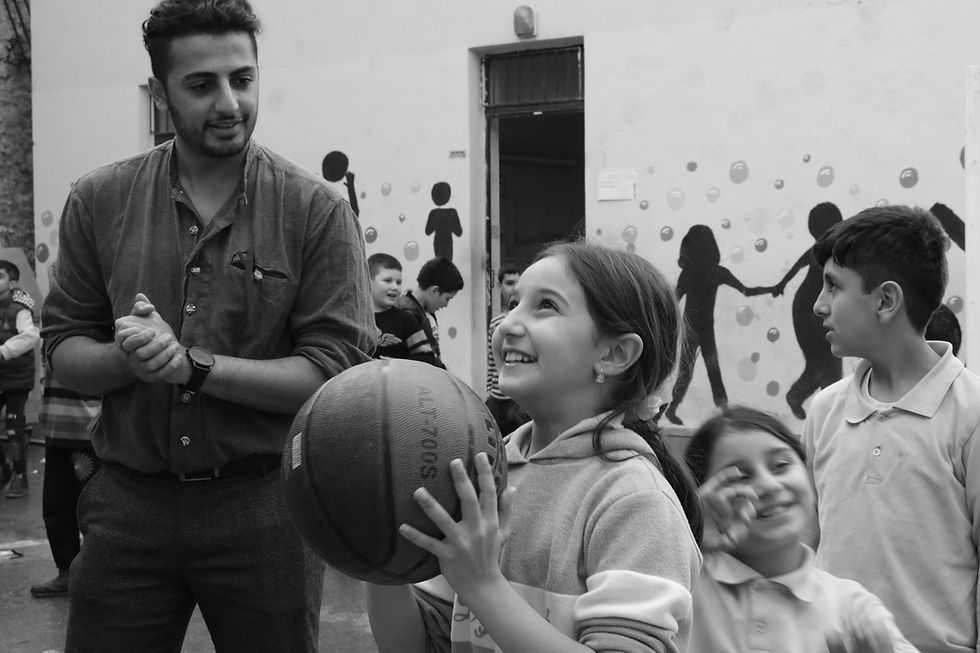Balancing Act: Strategies for Successfully Combining Athletics and Academics
- Anant Patni

- Feb 1, 2023
- 3 min read
As a coach, you play a very important role in helping your athletes balance the demands of academic and athletic pursuits. With the increasing pressure to perform both on and off the field, it's important to have strategies in place to support your athletes in their academic and athletic goals. This blog post will provide you with tips and guidance on how to help your athletes achieve a healthy balance between academics and athletics.

Why is Balancing Academics and Athletics Important?
Balancing academics and athletics is crucial for several reasons. First and foremost, a strong academic foundation provides a solid base for future success. Athletes who maintain good grades and earn a degree are more likely to have successful careers and lead fulfilling lives. Furthermore, academic success also provides athletes with more opportunities to continue playing sports at higher levels, as many collegiate programs require a minimum GPA for eligibility.
Additionally, balancing academics and athletics well can have a positive impact on an athlete's mental health. When athletes feel overwhelmed or stressed by the demands of school and sports, it can lead to burnout and decreased performance. On the other hand, when athletes have a healthy balance between academics and athletics, they are more likely to feel fulfilled and motivated.
Tips for Balancing Academics and Athletics
1. Time Management
Time management is key to balancing academics and athletics. Athletes need to prioritize their time and use it effectively to achieve their goals. Encourage your athletes to create a schedule that includes dedicated time for studying, training, and rest. You can also recommend them to use tools like calendars, to-do lists, and timers to help manage their time well.
2. Goal Setting
Setting achievable and realistic goals can help athletes stay focused and motivated. Work with your athletes to set both short-term and long-term goals for both academics and athletics. This can include goals related to grades, test scores, athletic performance, and even long-term career plans.
3. Prioritization
Athletes need to prioritize their responsibilities and make sure that their academic commitments take priority over athletic commitments. Encourage your athletes to prioritize their schoolwork and make sure that they have enough time to complete their assignments before their athletic practices or games.
4. Communication
Open communication between coaches, athletes, and parents can help to ensure that everyone is on the same page when it comes to balancing academics and athletics. Encourage your athletes to communicate any concerns or difficulties they are facing, and work with them to find solutions.
5. Support
Providing your athletes with support and resources can help them balance academics and athletics. This can include tutoring, study skills workshops, and access to technology and resources that can assist with academics. Additionally, making sure that athletes have access to mental health resources, such as counseling and support groups, can also help with stress management and overall well-being.
6. Flexibility
Flexibility is key to balancing academics and athletics. Athletes need to be able to adjust their schedules as necessary to accommodate changes in their athletic and academic commitments. Encourage your athletes to be flexible and adaptable, and work with them to find solutions that meet their specific needs.
7. Rest and Recovery
Rest and recovery are essential for both academic and athletic performance. Encourage your athletes to prioritize sleep and make sure that they are getting enough rest to perform at their best. Additionally, athletes need to be mindful of their nutrition and hydration, as that can impact both academic and athletic performance.
Balancing academics and athletics can be a challenge for athletes, but with the right strategies and support, it can be done. As a coach, you play a crucial role in helping your athletes achieve a healthy balance between academics and athletics. By implementing the strategies outlined in this blog post, you can help your athletes set achievable goals, prioritize their time and responsibilities, communicate effectively, and find the support they need to succeed. Additionally, encouraging a flexible and adaptable approach to balancing academics and athletics, as well as prioritizing rest and recovery, can go a long way in helping athletes maintain their mental and physical health, leading to improved overall performance in both areas. It's important to remember that success in sports and academics is about finding a balance that works for each individual athlete, and as a coach, you are there to guide and support them in that journey.
Thank you to all the coaches who guide and inspire athletes to excel in both academics and athletics, striking the perfect balance between mind and body.



Comments